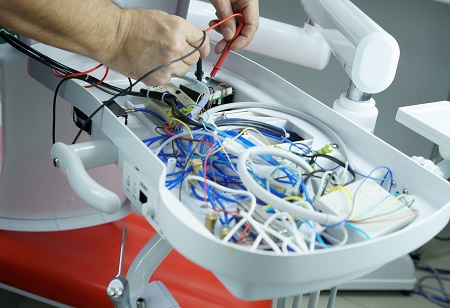Defective Medical Devices And Equipment: 5 Options To Consider
 Medical devices and equipment are substitutes to already existing treatment options in the healthcare industry. They work together with caregivers to ensure safety while improving your health status. You have fair chances of regaining functionality and reducing pain or disorders in your body by applying medical devices and equipment.
Medical devices and equipment are substitutes to already existing treatment options in the healthcare industry. They work together with caregivers to ensure safety while improving your health status. You have fair chances of regaining functionality and reducing pain or disorders in your body by applying medical devices and equipment.
However, you’re exposed to life-threatening risks if the medical devices are defective and can lead to painful experiences or catastrophic injuries. Therefore, it’s crucial to learn the causes of defective medical devices, identify them beforehand, and avoid further damage to your health.
Equally, it’s crucial to understand what steps to take when addressing defective medical devices. Relying on the Food and Drug Administration (FDA) approval of the medical devices isn’t enough since your suffering starts at the manufacturer or medical malpractice at the operation room.
Luckily, the medical community has set standards for all medical professionals to follow when administering care or treatment to patients. In addition, legal practitioners are available to interpret laws governing medical devices and equipment in the health industry. You can click here to learn more.
Here are five options to consider for defective medical devices and equipment:
1. Class Action And Multidistrict Litigation
There are two sides to filing lawsuits for defective medical devices and equipment. Class action cases represent a group of complainants, and you receive a uniform settlement regardless of the suffering or damage you’re experiencing. Whereas in multidistrict litigation, you reserve the right to lay claims individually through your lawyer.
In addition, the unifying factor in both lawsuits is the manufacturer who produces defective medical devices and equipment. Therefore, it’s essential to evaluate the extent of suffering the defective medical devices have on you to determine which option to consider.
2. Personal Injury Claims
The progressive friction between the defective device and your ailment can escalate to unmanageable pain levels or catastrophic conditions. Defective medical devices and equipment work against their intended function and may complicate your treatment leading to personal injury.
The setback of injury claim ranges from loss of income and employment or economic constraints like a high insurance premium. That becomes stressful since you need to balance life expenses and pay for treatment. Therefore, you can seek compensation with the help of a legal practitioner and settle the matter in court.
3. Product Liability Lawsuit
Manufacturers of medical devices are responsible for producing safe equipment that supports healthcare or treatment. In addition, they have to educate users about the devices by giving product details. That includes side effects and the risks of using medical devices for treatment or care.
However, bypassing the information phase and supplying defective medical equipment attracts lawsuits. Any harm you may experience when using medical devices is a breach of your safety and general wellbeing. Liability falls on the manufacturer for overlooking your safety to profit from producing defective medical devices and equipment.
Therefore, you can consider pursuing product liability and seek redress for the damage caused by using substandard products in your healthcare treatment.
4. Seek Medical Device Replacement
A perhaps uncommon event in the healthcare industry, you might consider replacing the defective medical device. The technological revolution aims to improve healthcare services, including the instruments applicable to medical conditions.
However, if you’re experiencing discomfort with the defective medical device, it’s best to seek alternative remedies to avert more harm. It’s defeatist to replace defective medical devices with other substandard health care equipment.
5. Fault Medical Service Oversight Body
Medical oversight bodies like FDA can be held accountable for mishap experiences raised by patients. Moreover, medical devices undergo thorough tests and must be certified by the medical community—the expectation of using medical devices to support treatment to improve your health condition.
Therefore, exposure to defective medical devices and equipment is in breach of service by the medical oversight body. You can present your case through a medical device reporting program and settle the matter in such an event. It’s the most straightforward option for addressing defective medical devices out of court.
Conclusion
Medical devices and equipment offer protection and support for treating health conditions. They’re alternative caregivers who can alleviate pain and suffering when solving health complications. However, undetected defects in the devices expose you to life-threatening risks that can alter your recovery process.
Therefore, it’s crucial to learn the impact of using medical devices and equipment in your treatment. It helps avoid causing more harm to your body and improve your health status. Furthermore, defective medical devices and equipment attract lawsuits against the manufacturers, and you can pursue compensation for damage caused. You can consult your lawyer for guidance through the litigation process.




